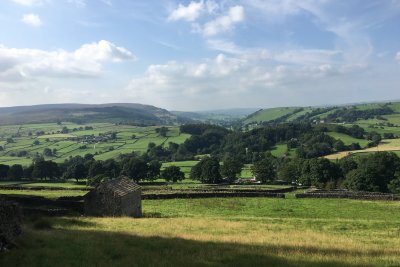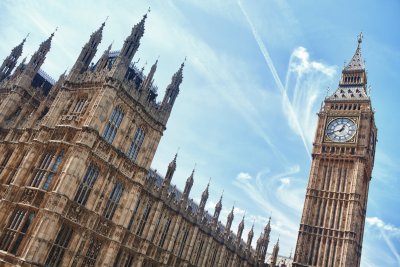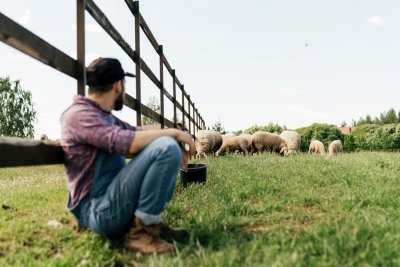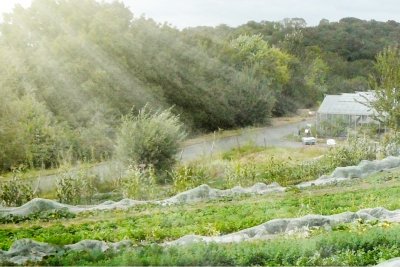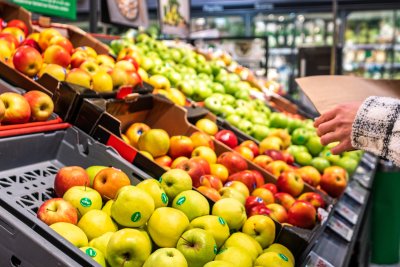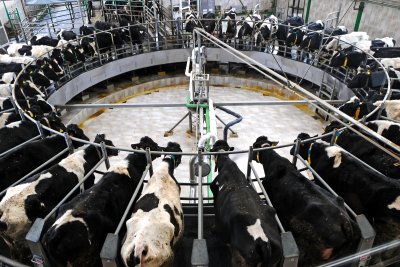
Government commits to protect UK farmers from low standard imports in future trade deals
Environment Secretary Theresa Villiers came under pressure about trade and standards at this year’s Oxford Farming Conference.
She was part of the opening session and as Charlotte Smith from BBC Radio 4’s Farming Today put it in her broadcast on 8 January “I think it’s fair to say that the panel put her under some pressure”.
Minette Batters (President of the National Farming Union): “Will the Government pull together a council or commission on food standards, to scrutinise trade deals and ensure we don’t end up with a two tier food system and import food that would be illegal for our farmers to produce here, something that the NFU will never accept.
“Secretary of State, It’s been great to hear verbal commitment from you on our welfare standards but this ambition must be hard-wired across government and it must be backed by legislation in the agriculture bill. I know that this will test the moral compass of some in government but failure to deliver is simply not an option.”
Alongside her was Craig Bennett from Friends of the Earth: “Trade trumps everything. And I use the word Trump advisedly. We could have the best system here in this country but if we do trade deals with other countries that allows imports of food that have been produced to lower standards than here that will undercut our farmers and be devastating for this industry.
And we’ve heard some warm words from the government on trade but they haven’t yet said they’ll turn down trade deals with Donald Trump that are offered if that results in importing lower standard food to this country. At the moment the conversation from government is about maintaining high standards in this country, that’s very welcome. We have to also say that food will not be imported to this country unless it’s made to similar standards.”
Charlotte Smith: "Theresa Villiers tried to reassure delegates here that the government won’t accept food imports produced to lower standards, but when they were asked to raise their hands if they were reassured, of the 500 or so people in this room, not one hand went up. I asked the SoS about that at a press conference
Charlotte Smith: Later on Henry Dimbleby is going to say that you can’t only consider the environmental impact of food that we produce in the UK but must also apply the same standards to food imports. When you reassured this conference about that not one person put up their hand to say they believed the government. What are you going to do?
Theresa Villiers “I will reiterate that we have a manifesto commitment to defend our high standards. We will just have to demonstrate to them during our trade negotiations that we are going to ensure that our farmers are treated fairly and that we ensure we are not undercutting the high standards and diluting them through our trade negotiations.
Charlotte Smith: Farmers want legislation. So that those cheaper imports to different standards can’t come in. Actually would you be looking at consumers and saying they should be able to get cheaper food albeit at a different standard.
Theresa Villiers: “What I am saying is what is in our manifesto that our British brand is its great strength, is our high standards of food safety, of food security and animal welfare and we are going to defend that in our trade negotiations.”
Charlotte Smith: if push comes to shove and a deal with, for instance the Americans you would walk away from that deal over food standards even if that cost you everything else?
Theresa Villiers: Well, as I said in my speech, we will defend our national interests and in any trade negotiation of course we will be prepared to walk away if we feel that what is on the table is not consistent with our national interest. And we all know that the Agriculture chapter is the last to close in any trade negotiation, it’s always the most difficult, it’s always the most sensitive.”
Subsequently, Theresa Villiers gave an interview to BBC’s Countryfile – to be broadcast on the 26 Jan – where she strengthened her commitment on protecting UK standards from trade deals and said it would be put into UK legislation.
Theresa Villiers: “Protecting our standards means that we need to ensure that our farmers, producing to high standards, are treated fairly by any future trade agreement. And that is why of course we will be using our trade negotiations to make sure that it’s only food that we believe would be acceptable in our market that is allowed to come into our markets. That is one of the ways we need to protect our standards by ensuring that food that comes into this country is produced to equivalent standards as our own.”
Tom Heap: "In that case, infamous chlorine washed chicken, and hormone injected beef, which would be illegal here, would not be allowed to be imported. That’s what you’re promising"
Theresa Villiers “It is illegal, we will not be importing chlorinated chicken, we will not be importing hormone treated beef. Both of those are illegal under EU law which we are importing into our domestic system.”
Tom Heap: “You are importing the EU law into our domestic system. That’s very interesting. That’s a guarantee that even when in in a few years’ time Donald Trump and his team are sitting there saying, I will only give you this deal if you allow our meat imports and our standards to come into this country, your government will hold the line?
Theresa Villiers: “We will hold the line. It’s in our manifesto. We have the commitment of the Prime Minister on this. We know how important for our farmers, but also for our economy, for our standards and welfare and our values. It is important that those are reflected in our trade negotiations. We will defend our national interest and our values including our high standards of animal welfare.”
Tom Heap: With law? You talked about putting special tariffs on things, but now you’re saying it’s going to be the law that those sorts of things won’t be allowed in.
Theresa Villiers: “In terms of chlorinated chicken and hormone beef, there are legal barriers to their imports and those are going to stay in place.”
Good Food Trade Campaign: Campaigning for good trade that benefits people and the planet at home and overseas.
Sustain
The Green House
244-254 Cambridge Heath Road
London E2 9DA
020 3559 6777
sustain@sustainweb.org
Sustain advocates food and agriculture policies and practices that enhance the health and welfare of people and animals, improve the working and living environment, promote equity and enrich society and culture.
© Sustain 2025
Registered charity (no. 1018643)
Data privacy & cookies
Icons by Icons8
